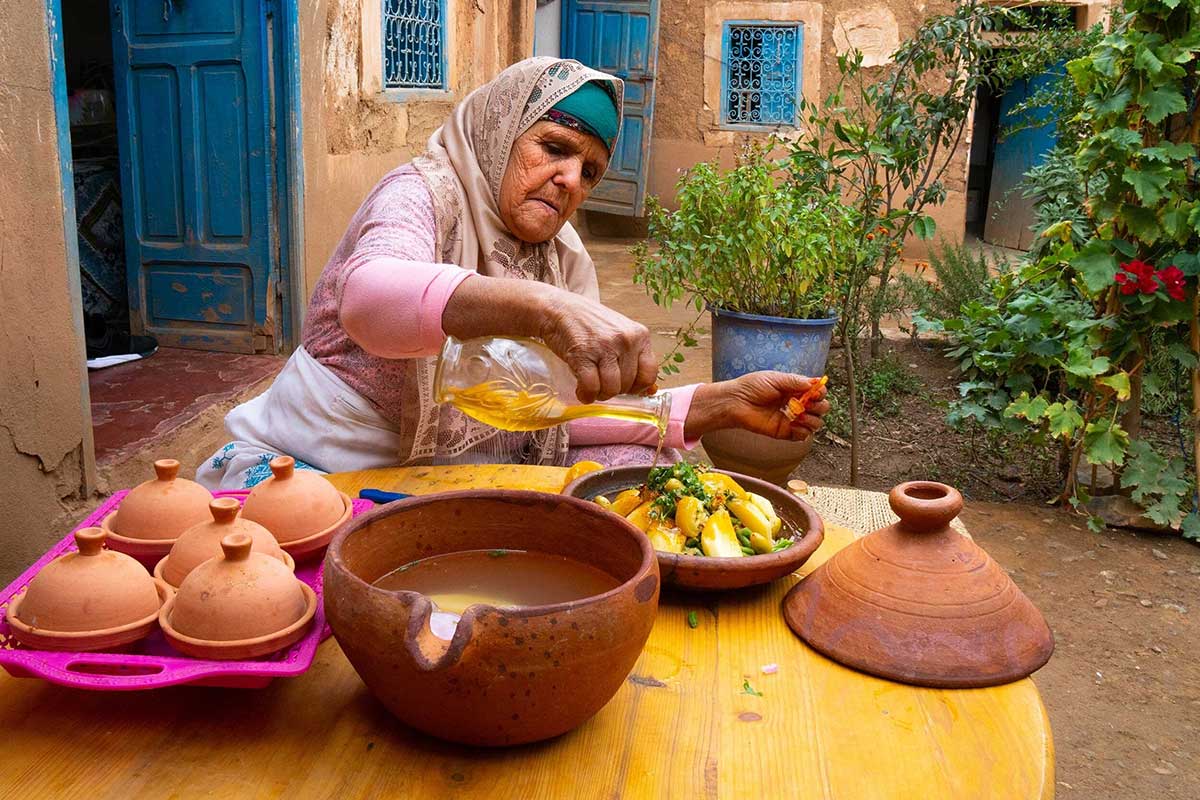
Trekking in Morocco’s stunning Atlas Mountains isn’t just about breathtaking landscapes and vibrant Berber culture—it’s also about indulging in authentic Moroccan cuisine. From aromatic spices and hearty stews to fresh mountain produce, your hiking adventure around Imlil offers a culinary journey that delights all your senses.
Here’s your ultimate guide to the best local foods you must taste while exploring Morocco’s Atlas region, complete with recommendations for where and when to enjoy them on popular treks.
Traditional Moroccan Tajine
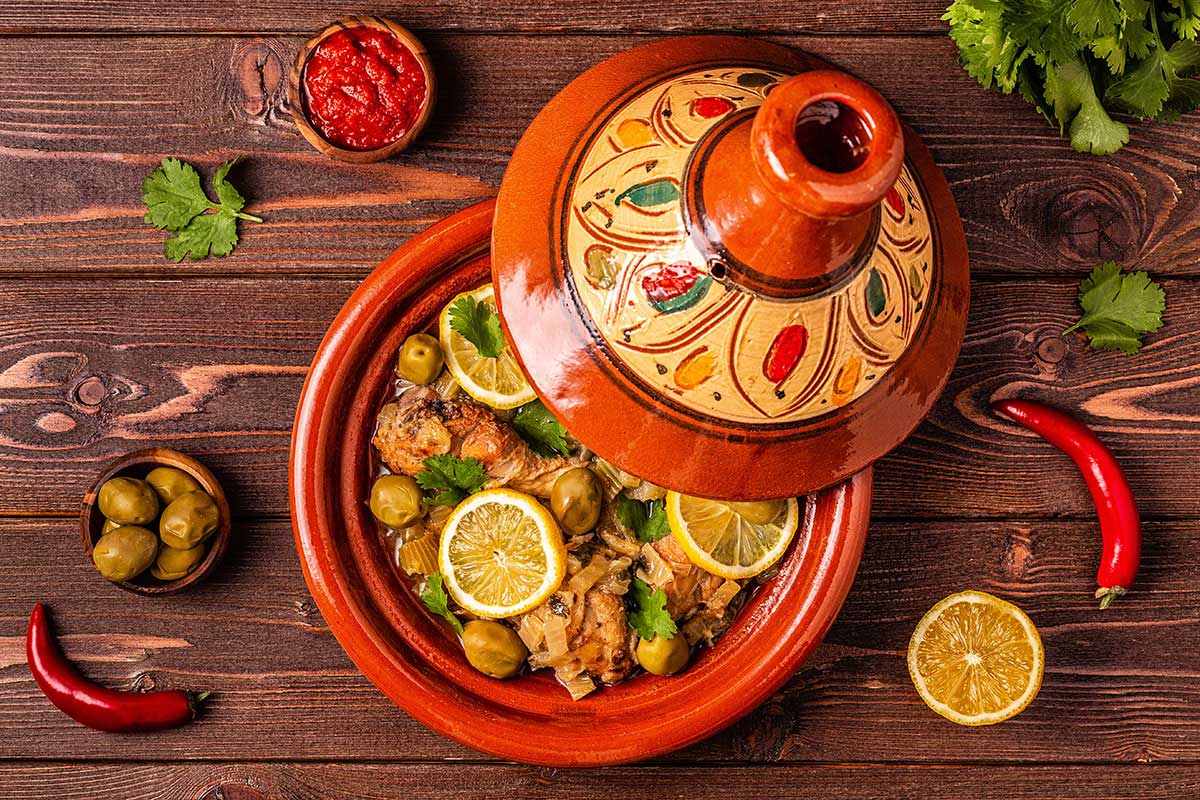
What is it?
A tajine is a slow-cooked stew prepared in a distinctively shaped clay pot. Common ingredients include lamb, chicken, or vegetables seasoned with local spices such as cumin, saffron, and ginger.
Where to enjoy:
During treks like the 2-Day Atlas Valleys Trek or the comfortable 4-Day Comfort Lodge-to-Lodge Trek, savor this classic dish at local guesthouses and homestays.
Berber Couscous
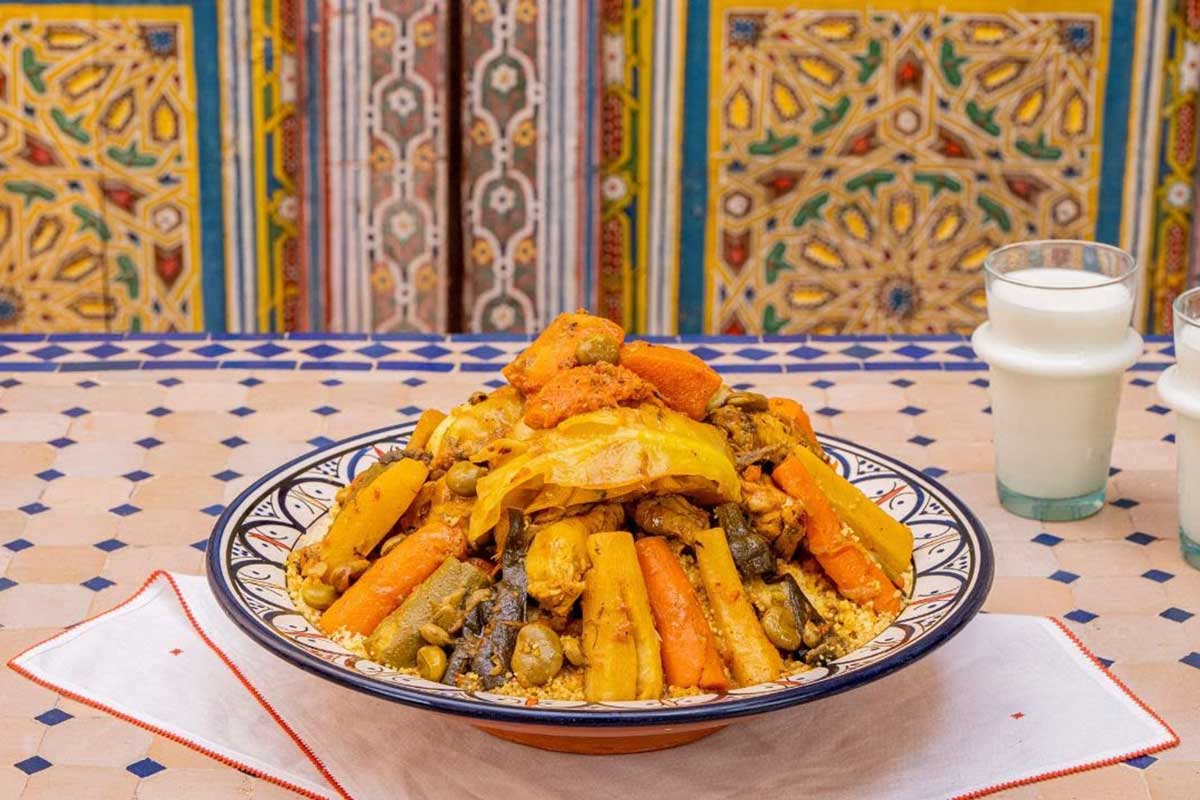
What is it?
Steamed semolina grains topped with seasonal vegetables, tender meat, and aromatic spices. Traditionally served on Fridays, couscous symbolizes community and hospitality in Moroccan culture.
Where to enjoy:
Villages visited during the Atlas 4-Day Berber Villages Trek or 5-Day High Atlas Berber Villages Hike often offer home-cooked couscous, making your cultural experience even richer.
Freshly Baked Berber Bread (Aghroum)
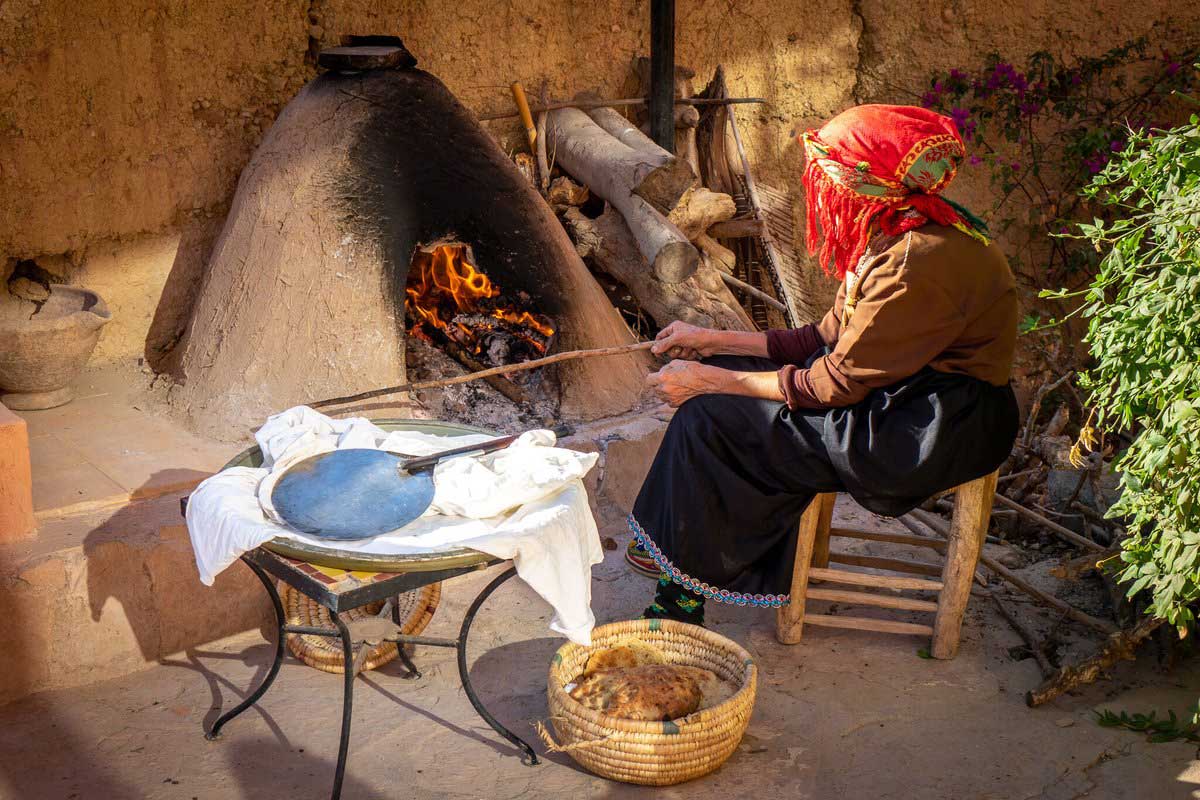
What is it?
A warm, crusty flatbread baked daily in wood-fired ovens. Often served with olive oil, honey, or Moroccan butter, it’s a staple at every meal.
Where to enjoy:
Enjoy freshly baked bread at village stops along treks like the 3-Valleys 3-Days Trek or the scenic 2-Day Imlil to Ouirgane Traverse Trek.
Moroccan Mint Tea
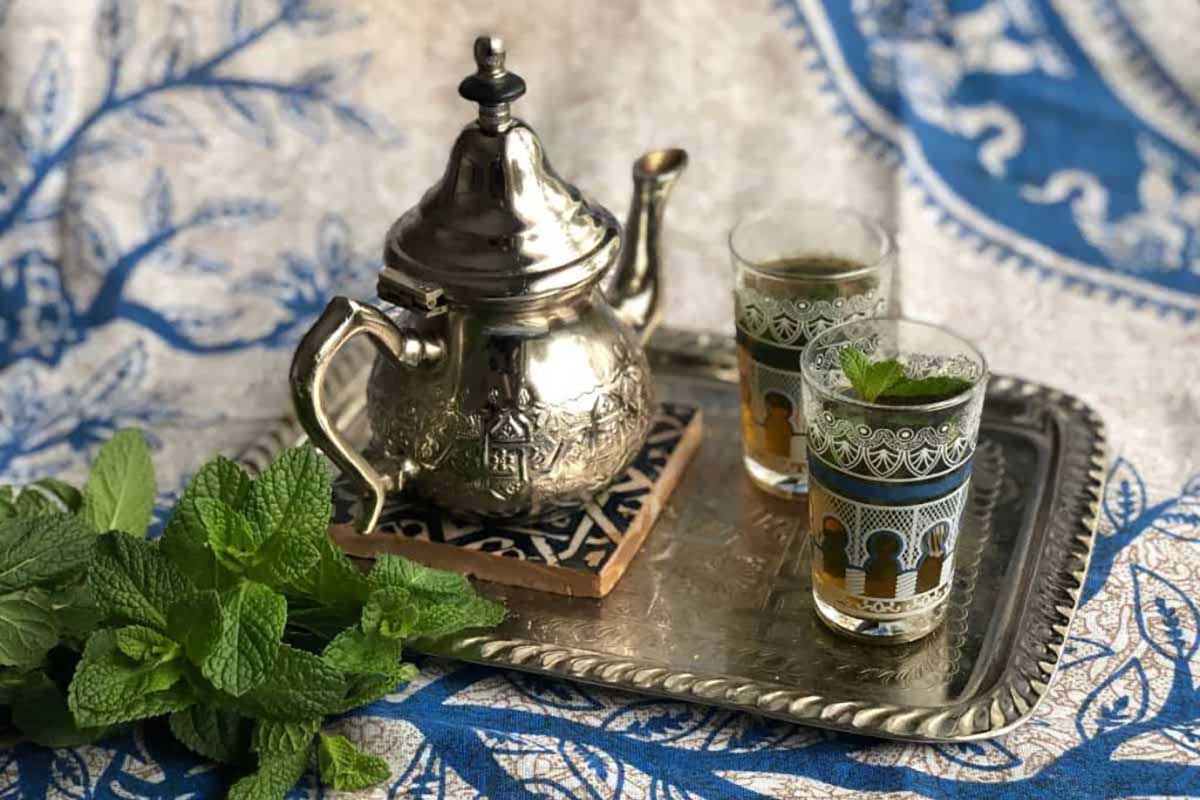
What is it?
A refreshing tea brewed with fresh mint leaves, green tea, and plenty of sugar. This tea isn’t just a drink—it’s a gesture of hospitality and friendship.
Where to enjoy:
Almost anywhere along your trek. Particularly delightful after long hiking days on the Toubkal Circuit Trek or after summiting on the 2-Day Toubkal Ascent Trek.
Local Mountain Honey
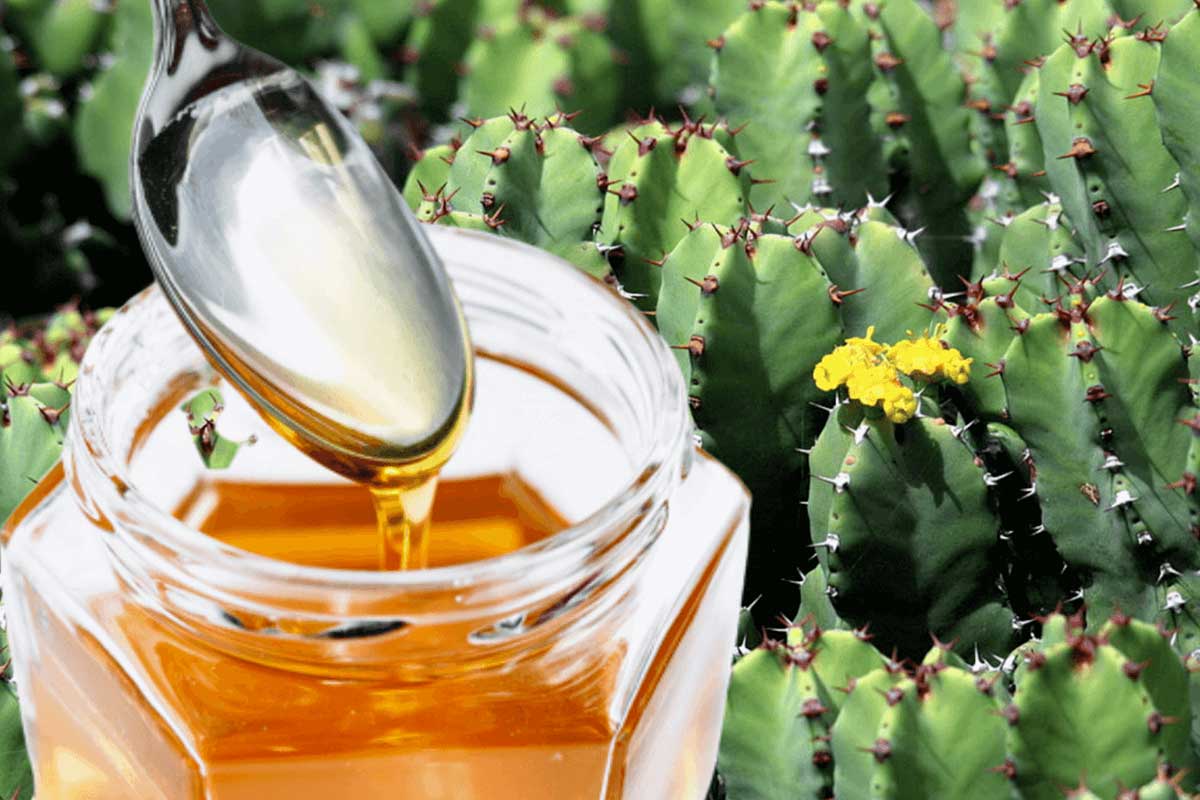
What is it?
Atlas Mountain honey, produced by bees that pollinate wildflowers, herbs, and orange blossoms, has a unique flavor and medicinal properties valued by locals.
Where to enjoy:
Local shops and villages such as Amsouzart on the 6 Days Villages, Valleys and Toubkal Trek often offer tastings. It’s a perfect souvenir!
Moroccan Omelet (Berber Breakfast)
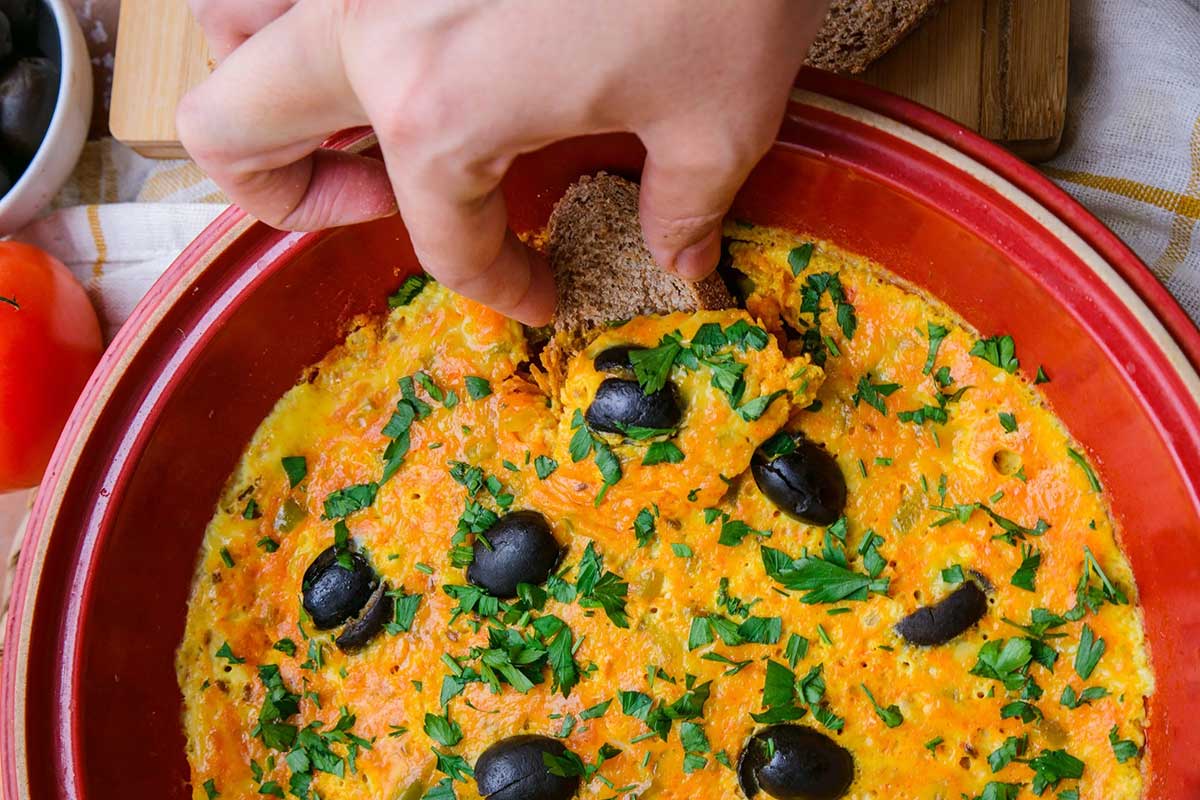
What is it?
Eggs cooked gently with tomatoes, onions, cumin, and paprika, often served sizzling hot with bread. This protein-rich breakfast is ideal fuel for long trekking days.
Where to enjoy:
Guesthouses on the 3-Day Atlas Valleys Trek commonly serve this delicious morning dish.
Freshly Squeezed Orange Juice
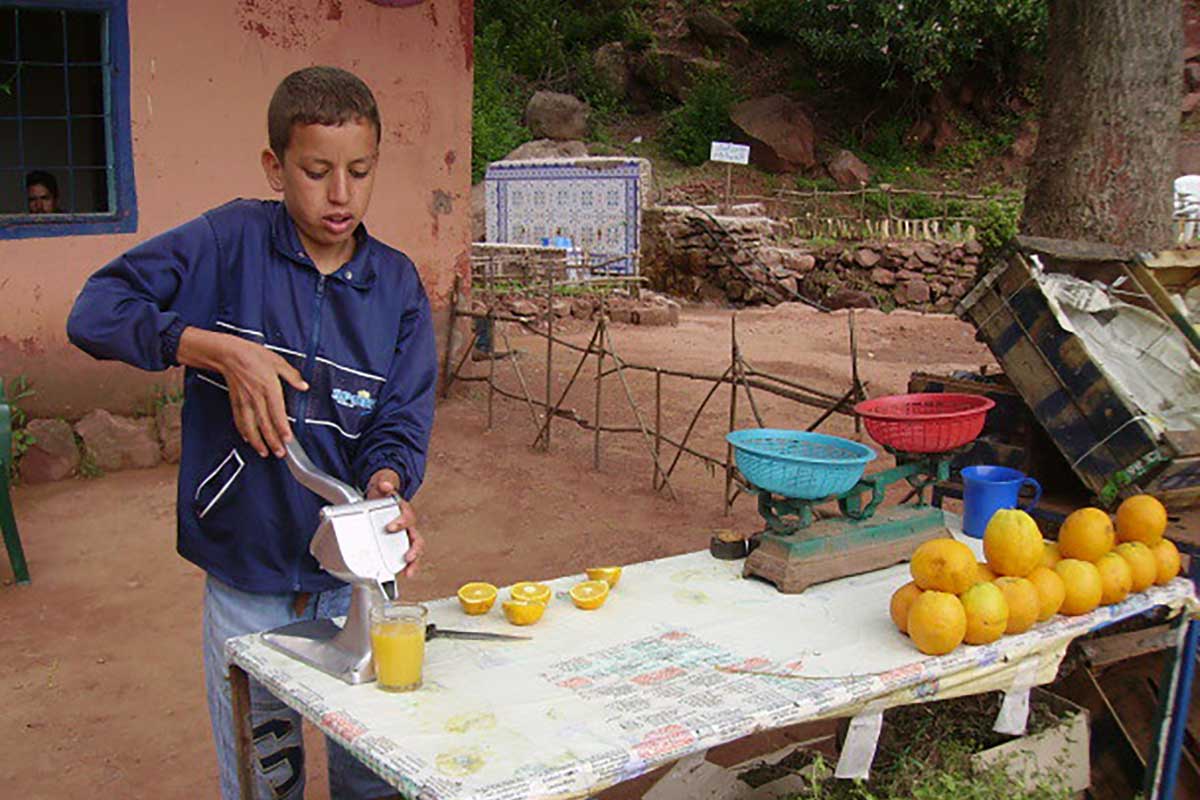
What is it?
Freshly squeezed from locally grown Moroccan oranges, this refreshing drink revitalizes trekkers at stops along mountain trails.
Where to enjoy:
On trails like the 6-Day Trek from Ourika Valley to Toubkal, look out for small stands in villages offering this sweet refresher.
Seasonal Fruit and Nuts
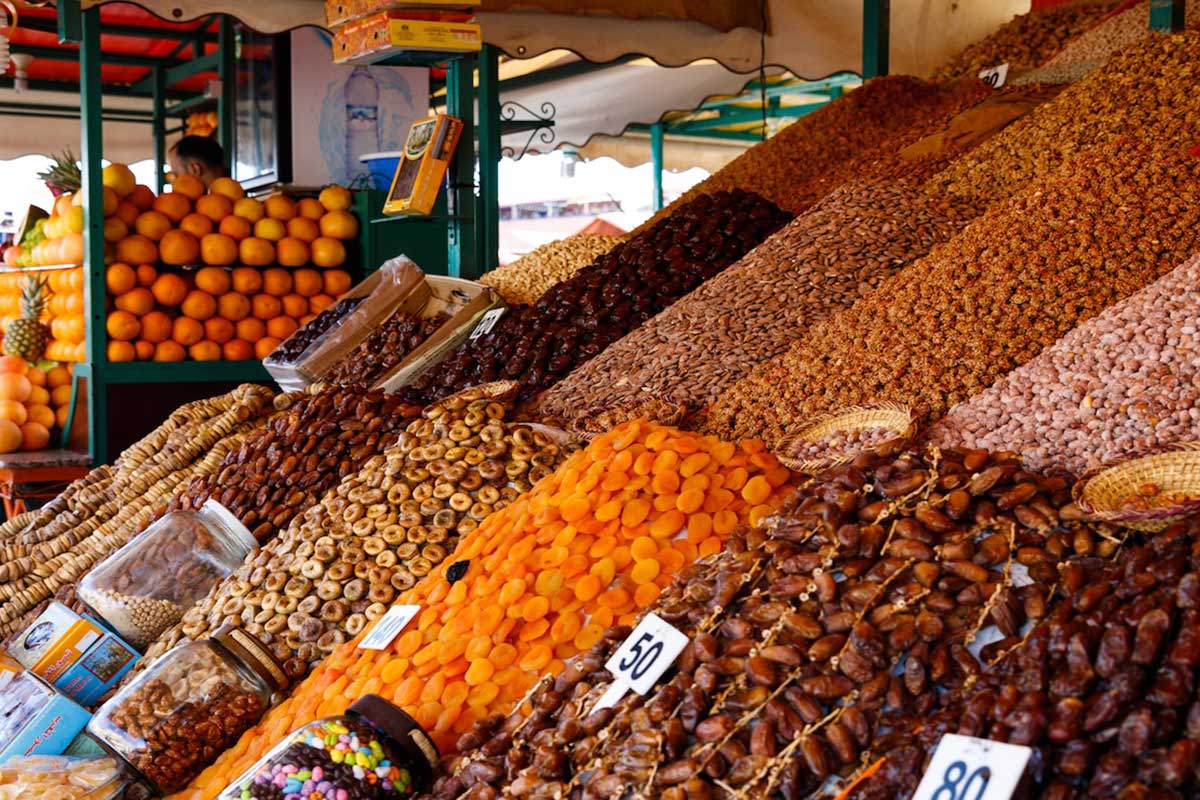
What is it?
Morocco’s fertile valleys produce abundant fruit—figs, almonds, walnuts, dates, and pomegranates. Snack on these healthy treats for energy during treks.
Where to enjoy:
Valley trails such as the 4-Day Wild Atlas Mountain Trek pass through fruit orchards where you might sample directly from the source.
Moroccan Salads
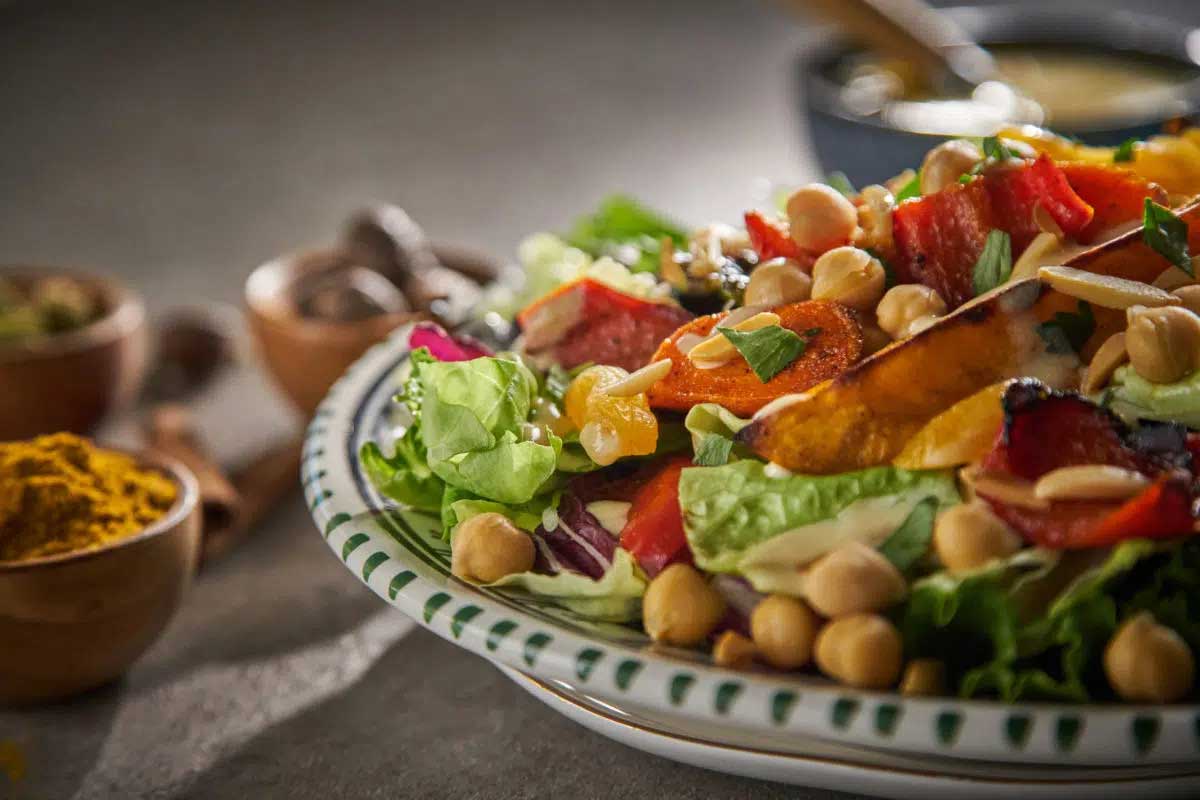
What is it?
Typically served as a starter, Moroccan salads range from simple cucumber and tomato dishes seasoned with herbs, to spiced cooked vegetable medleys.
Where to enjoy:
Village guesthouses and lodges along your hiking routes, especially during the relaxed Day Trip to the Atlas Mountains.
Mechoui (Slow-Roasted Lamb)
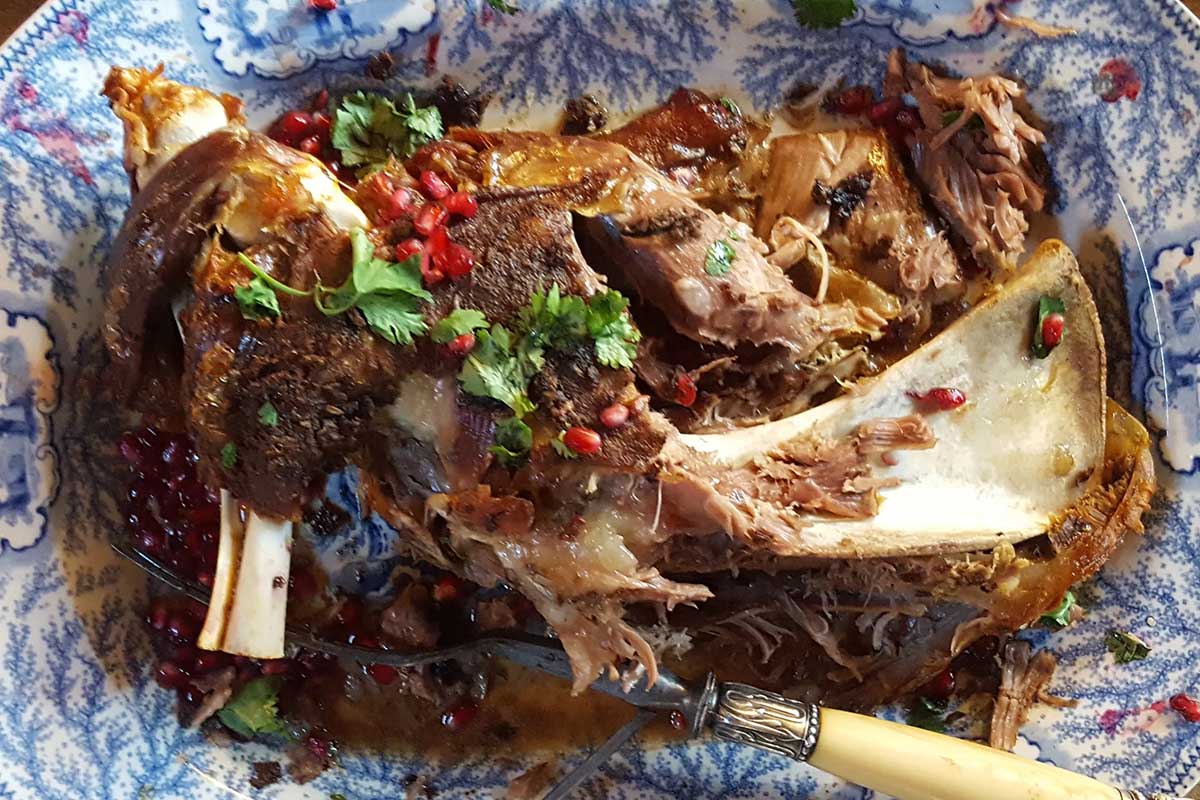
What is it?
Lamb seasoned with salt and cumin, slowly cooked until incredibly tender. Often reserved for special occasions or group feasts.
Where to enjoy:
Larger gatherings during extended treks such as the 7 Days Toubkal and Sahara Desert Tour may include mechoui feasts.
Frequently Asked Questions (FAQ)
Yes, guides and guesthouses along routes like the 4-Day Comfort Lodge-to-Lodge Trek can cater to vegetarian, vegan, gluten-free, and other dietary restrictions.
Absolutely. Food is freshly prepared from local ingredients, offering travelers authentic and safe culinary experiences. Always ensure good hygiene practices, such as hand-washing before meals.
Drink plenty of bottled or purified water, available throughout your trek. Enjoy tea, fresh juices, and avoid tap water to ensure optimal health.
Experience Culinary Delights on Your Next Trek
Exploring the Atlas Mountains around Imlil means immersing yourself in more than stunning landscapes—it’s a journey into Morocco’s rich culinary traditions.
More Helpful Reading:
Ready to savor the tastes and sights of Morocco? Plan your adventure today at ImlilTrek.com.
